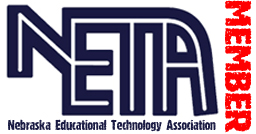The future of computing...it's all in your hands!
Remember the Palm OS devices? These were the coolest little devices in their time. I remember vividly using this device on a regular basis. It stored all my contacts, my calendar, held some of my office documents - all in a handheld device. I graduated from that device and have moved onto an iPod Touch. The Palm OS is still alive, and the company is still developing new devices. What we are seeing is a merger of a palm device with a phone, like the Palm Pre and the Palm Pixi.
I believe that the idea of utilizing handheld devices in the classroom is on the horizon. We see students bringing them into schools and libraries all the time. These devices are integrated quite naturally into their daily lives. You don't have to teach them how to use these devices, they figure it out on their own. Although a handheld device does not necessarily offer the computing power of a desktop or a laptop, they do offer some benefits to teaching and learning. Some advantages include cost, mobility, and size. Handheld devices, like an iPod touch, are very inexpensive compared to desktops and laptops. Because they are light and small enough to fit in a pocket or backpack, they can be easily carried with you most anywhere.
We've seen an increase in the promotion and production of slate technology, which I think could have an even bigger impact on education. The iPad, the first version from Apple, will be shipped and in the hands of some users by April 3rd. You can already read predictions on countless blogs and forums on how this will impact schools just by googling the name. You may also find some who do not agree it is fit for education - time will tell either way. No matter if you like or dislike the iPad, its technology has set the stage for other devices and applications. HP has now released some video documentation on its version of slate technology, the HP slate. There is also the Archos tablet that offers a variety of tablet sizes and functions. Gizmodo has done a comparison of these three types of technologies as well as others that are on the market.
Recently, I was asked if these technologies will drive the education market. My response is simply that kids need to be engaged, with or without technology. It is my opinion that technology alone does not necessarily increase student learning or achievement. It is the way the technology is used that can have a tremendous impact. It is a tool that helps students learn a concept or idea, to digest material, to collaborate, to be competitive in a global economy, and to be a 21st Century Learner.
Website of the month:
Lit2go from the University of South Florida - you can find them also on iTunes U, where you can download complete books for your classroom or you can visit their website - http://etc.usf.edu/lit2go/



1 comment:
I think you are exactly right about the future of technology, Gregg. I'm anxious to see how handheld devices develop and expand their capabilities.
Great blog!
Post a Comment